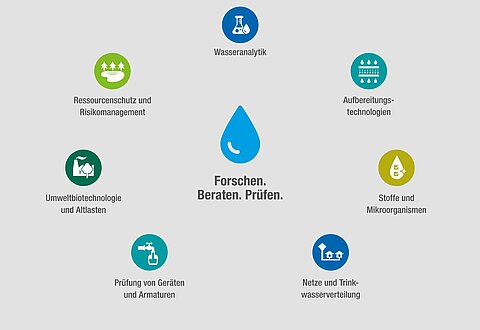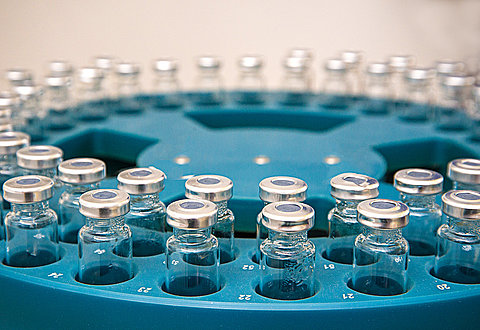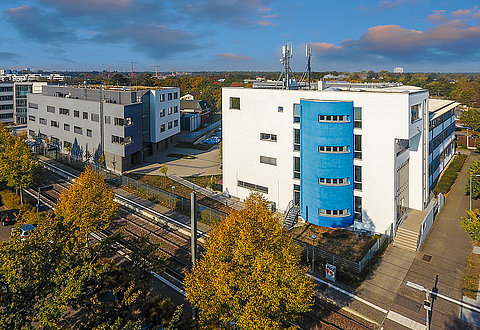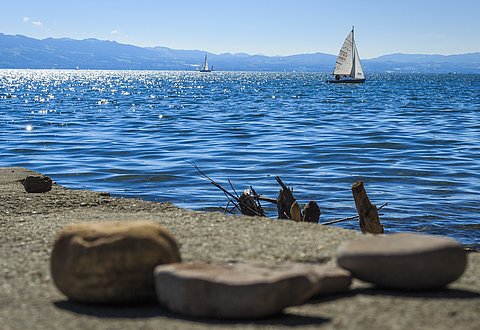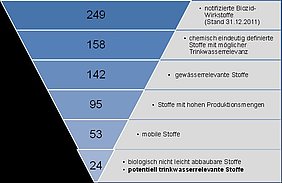Biocides are substances used to fight harmful organisms. For reasons of preventative water protection but also for the long-term reliability of drinking water supply, it is important to possess well-founded information on the presence of biocide residues in bodies of water and understand their significance for drinking water supply.
The aim of the DVGW-funded study was to survey the biocides approved in Germany and prioritise them from a drinking water supply perspective. The figure summarises the procedure by which 24 substances were identified from the 249 substances notified as biocides at European level, and which are particularly relevant from a drinking water supply perspective. On 31/12/2011, according to the Biocides Directive, 12 of these 24 substances were already approved for at least one product type.
For the 24 biocides with high priority for drinking water supply, it is recommended that the database is improved in terms of the criteria used to evaluate drinking water relevance. This applies particularly to information on production or consumption volumes – preferably relating to Germany – and data on substance properties, particularly on microbial degradation under environmentally relevant conditions. In addition, analytical methods should be provided for the prioritised active substances to investigate the presence of these substances in waters. These investigations should be supplemented by measurements and laboratory testing where applicable, to study the behaviour of the active substances in drinking water treatment.


![[Translate to English:] Prüfstelle-Produktprüfung_Teststand Test centre and product testing](/fileadmin/_processed_/0/9/csm_TZW-Karlsruhe_Pruefung_Geraete-Teststand_444204ae51.jpg)
















